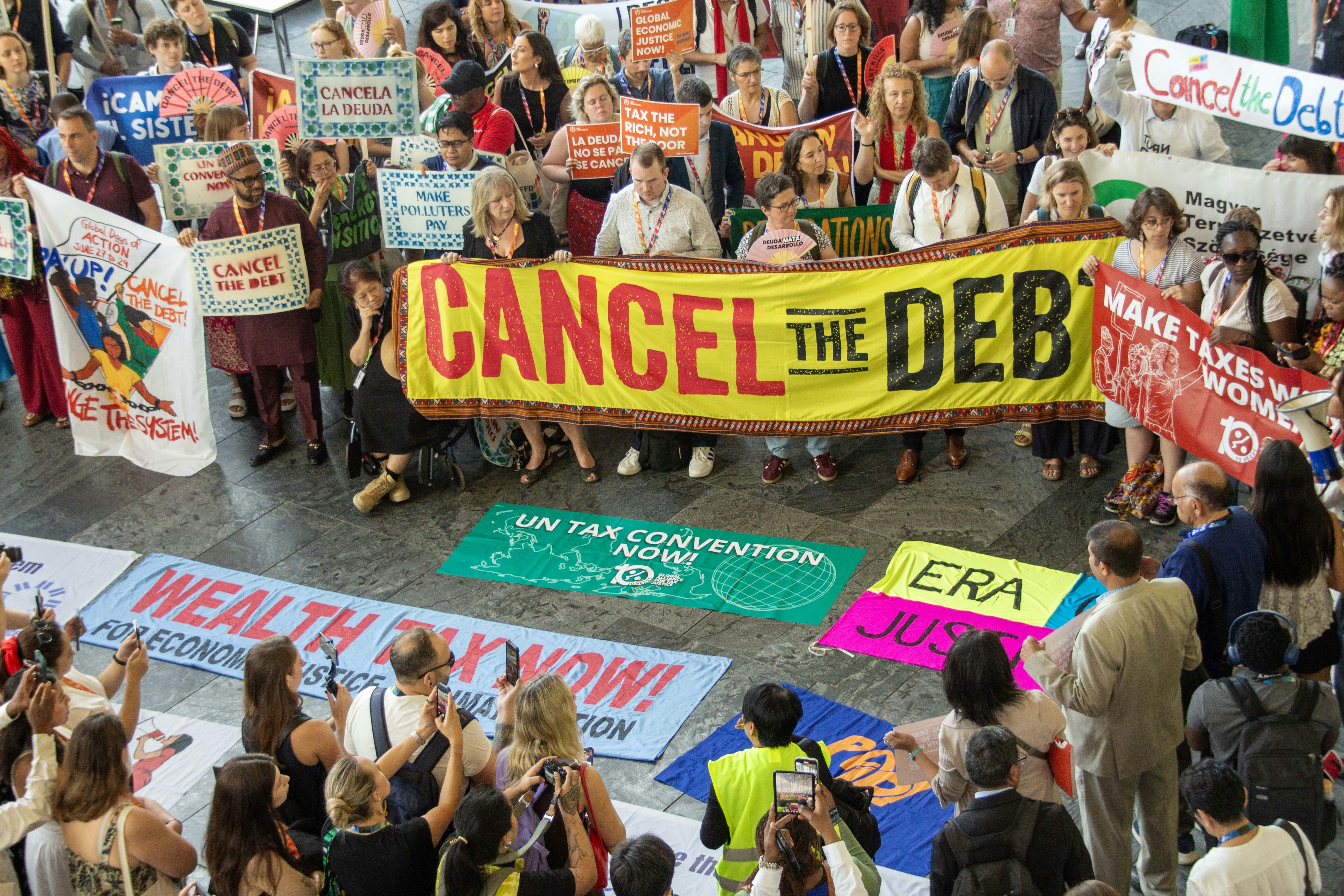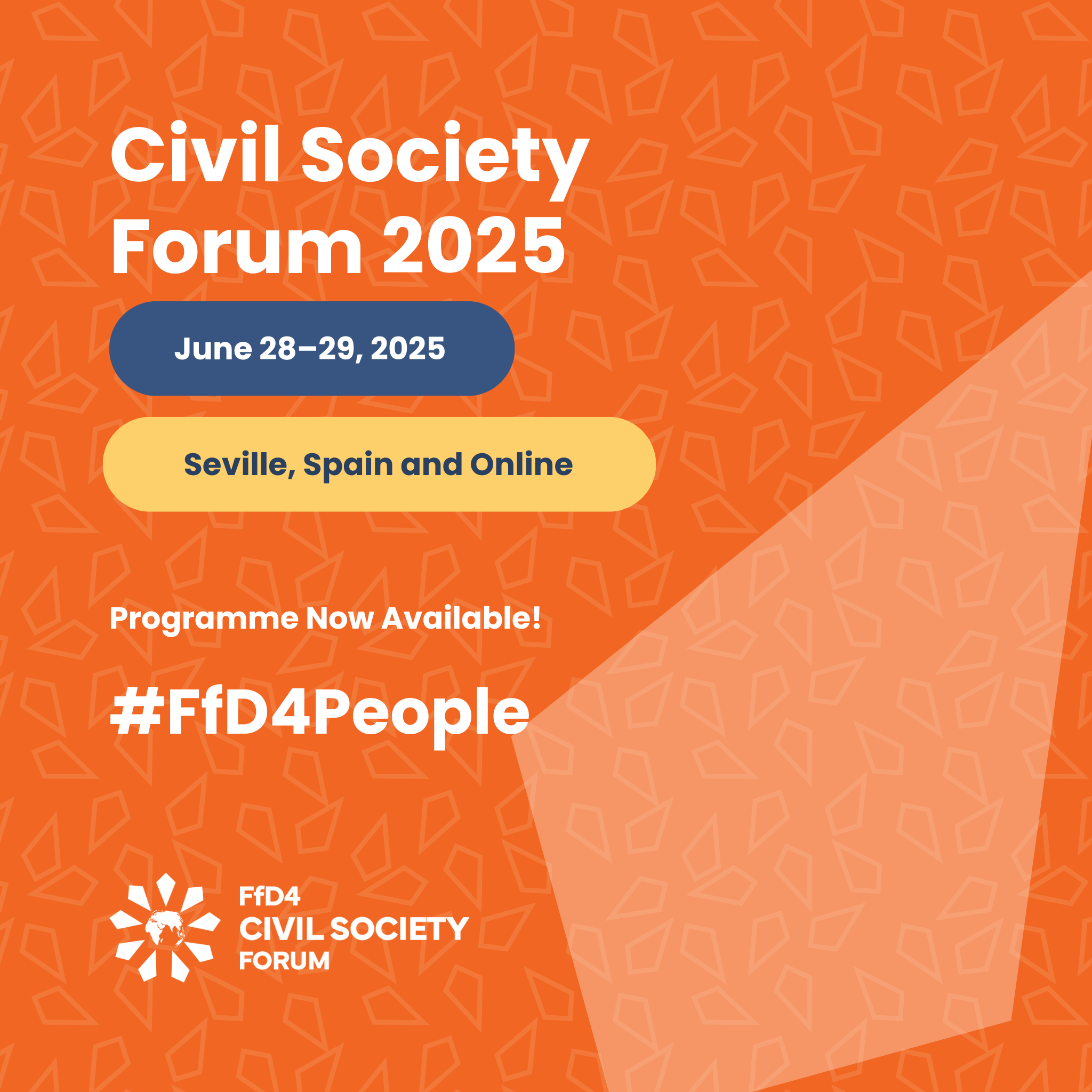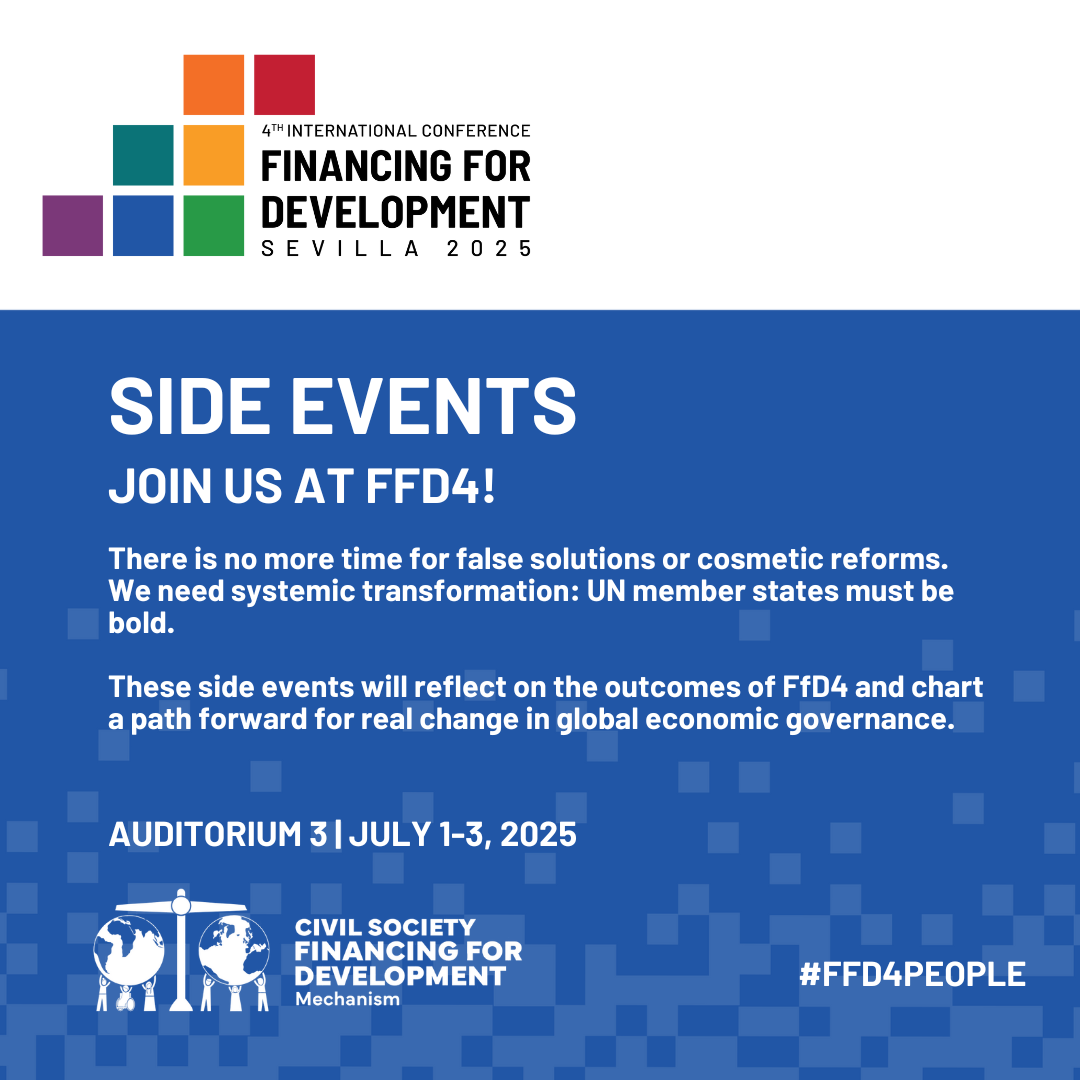
Side-Event Report: Systemic issues and debt in trying times: How can the FFD process help?
Side-Event at the ECOSOC Forum on Financing for Development follow-up organized by UNCTAD, the Friedrich-Ebert-Stiftung and the Addis Ababa CSO Coordinating Group – ACG and Women’s Working Group on FFD (with Brot für die Welt, Eurodad and Center of Concern acting as facilitating organizations)
Side-Event Summary prepared by: Aldo Caliari, Director, Rethinking Bretton Woods Project, Center of Concern
Event Date and Time: United Nations, New York, 19 April 2016
Agenda:
Special welcome by H.E. Mr. Mukhisa Kituyi, Secretary General, UNCTAD (statement)
Moderator:
– Aldo Caliari, Director, Rethinking Bretton Woods Project, Center of Concern
Welcome:
– Bettina Luise Rürup, Executive Director, Friedrich-Ebert-Stiftung New York Office
Speakers:
– José Antonio Ocampo, Professor, School of International and Public Affairs, Columbia University; Chair, Committee for Development Policy, United Nations Economic and Social Council (ECOSOC) (presentation based on report)
– Manuel Montes, Senior Advisor, Finance and Development, South Centre (Presentation)
– Stephan Ohme, Head of Division on Financing for Development, Federal Ministry for Economic Cooperation & Development, Germany
– Stephanie Blankenburg, Head, Debt and Development Finance Branch, Division on Globalization and Development Strategies, UNCTAD
– Bodo Ellmers, Policy and Advocacy Manager, Debt and Responsible Finance, Eurodad (Presentation)
Side-Event Summary:
Financing conditions for most developing countries were favorable for several years due to high export earnings and easy access to credit. This has changed rapidly in the past year, as commodity prices have collapsed and capital flows have dried up. Recessionary or subdued growth expectations are taking hold everywhere, not just in developing countries, reflecting deep uncertainties. The debt sustainability indicators of many countries have deteriorated fast, and outlooks are for further deterioration.
The Addis Ababa Action Agenda recommitted countries to addressing systemic issues, debt sustainability and the development financing agenda coming out of preceding conferences in Monterrey (2002) and Doha (2008), while promoting an emphasis on sustainable development. Against a challenging outlook for the global economy, the pursuit of a comprehensive reform agenda in this area is becoming increasingly urgent. The UN’s Financing for Development follow up process holds promise as a venue to build consensus and advance policy proposals to address these challenges.
The objective of the side-event was to create a space to discuss systemic issues, including debt, which are key aspects of the holistic financing for development agenda are particularly urgent at these trying times, and how the FFD Process could help concretely move forward policy proposals to address them.
Some of the key messages and outcomes to emerge (including recommendations in bold) were:
Debt problem has been present for a long time, but treatment by IMF and World Bank tends to be in an atomized way. Now we know it is systemic, and affects even healthiest and soundest of borrowers. Responses have to also be systemic.
The 2016 Financing for Development Forum faces a tremendous challenge to forge coherence among three flagship development agreements from 2015: the Addis Ababa Action Agenda, Agenda 2030 and the Paris Climate Change Agreement. Systemic issues and debt are key among the areas where international cooperation is needed to move these interdependent processes forward.
Tax evasion and avoidance are massive problems: 100-240 billion US dollars are lost every year to tax evasion and avoidance, while 100 billion US dollars alone go missing from developing countries due to profit shifting by multinational corporations. The international community therefore needs strong forms of cooperation to control these problems. The UN has to be at the center of this process, so we should promote the work of the UN Committee of Experts on International Cooperation in Tax Matters while continuing to work towards creating a UN intergovernmental tax body on tax cooperation.
Reemerging systemic imbalances require designing a proper global financial safety net as a network of regional reserve funds and swap arrangements, and increasing the active use of the Special Drawing Rights. To address volatility of capital flows, the system should facilitate macroprudential regulations on cross-border flows. Broadening the participation of developing countries in international economic decision-making calls for a focus not only on Bretton Woods Institutions but also the FSB. We also need to put in place a multilateral system for that guarantees sovereign debt restructurings are timely, orderly, effective, fair and negotiated in good faith.
The IMF now ratified finding that international liquidity is episodic. This means developing countries are largely at the mercy of external payments booms and busts. The natural conclusion of this should be that debtor countries are not completely in control when their international liabilities increase and commodity prices are rising, which will lead to external debt problems when the trend reverses. There is a systemic basis for external payments booms and busts and requires, therefore, systemic solutions that cannot be found in the domestic policies of recipient countries alone.
Debt problem is interlinked with political and humanitarian challenges, too (Ebola crisis, confidence in financial markets. AAAA focused on diverse streams of resources to try to respond to what is a re-emerging debt crisis and commitments in all areas need to be pursued.
Regional In the face of exogenous nature of difficulties, and while global arrangements may take time, FFD can also support a middle-step of regional solutions, such as regional clearing units.
Financing for Development can be a venue for highlighting and building consensus on systemic interpretations of the crises and pursue proposals that are also systemic to solve the problems.
FFD follow up is a forum where debt sustainability can, and should, be addressed as a means to an end (as opposed to the way it is addressed by international financial institutions). It is a process not only to monitor implementation, but also develop further commitments that were generic and required further discussion. It should give follow up to the process started at the Ad hoc committee of the General Assembly on multilateral framework for sovereign debt restructuring.
FFD Forum outcome should not only indicate areas of progress, but also challenges and areas for further development, including some where the Forum itself takes responsibility, otherwise is 1) not credible and 2) not useful as a working document for UN Member States.
Related Updates


